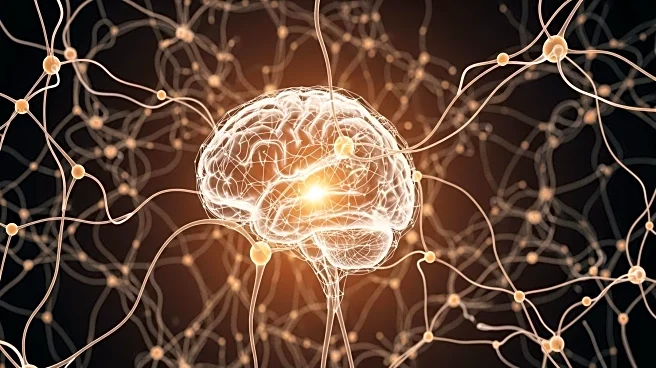What is the story about?
What's Happening?
A recent study published in Molecular Biology and Evolution suggests that the genetic changes responsible for human intelligence may also increase the likelihood of autism and schizophrenia. Conducted by researchers including Stanford University neuroscientist Alexander Starr, the study found that certain genes associated with human intellect are linked to neurodevelopmental conditions. By comparing RNA from brain cells across six mammalian species, the researchers identified rapid changes in specific neurons in humans, which may have contributed to advanced cognitive abilities. This research adds to the understanding of autism's genetic basis, with up to 80% of cases linked to inherited mutations.
Why It's Important?
The study provides significant insights into the genetic underpinnings of autism and schizophrenia, suggesting that these conditions may be an evolutionary trade-off for advanced human cognitive abilities. This understanding could influence future research directions and therapeutic approaches for neurodevelopmental disorders. Additionally, the findings highlight the complex interplay between genetic evolution and neurodiversity, potentially reshaping societal perceptions of autism and related conditions. As awareness and diagnostic criteria for autism continue to evolve, this research underscores the importance of considering genetic factors in public health strategies and educational policies.
Beyond the Headlines
The study's implications extend beyond genetics, touching on ethical and cultural dimensions of neurodiversity. By framing autism as a potential evolutionary advantage, the research challenges traditional views of neurodevelopmental disorders as purely detrimental. This perspective could foster greater acceptance and integration of neurodivergent individuals in society, promoting diversity and inclusion. Furthermore, the study raises questions about the role of natural selection in shaping human traits, encouraging a reevaluation of how we define and value intelligence and cognitive differences.















